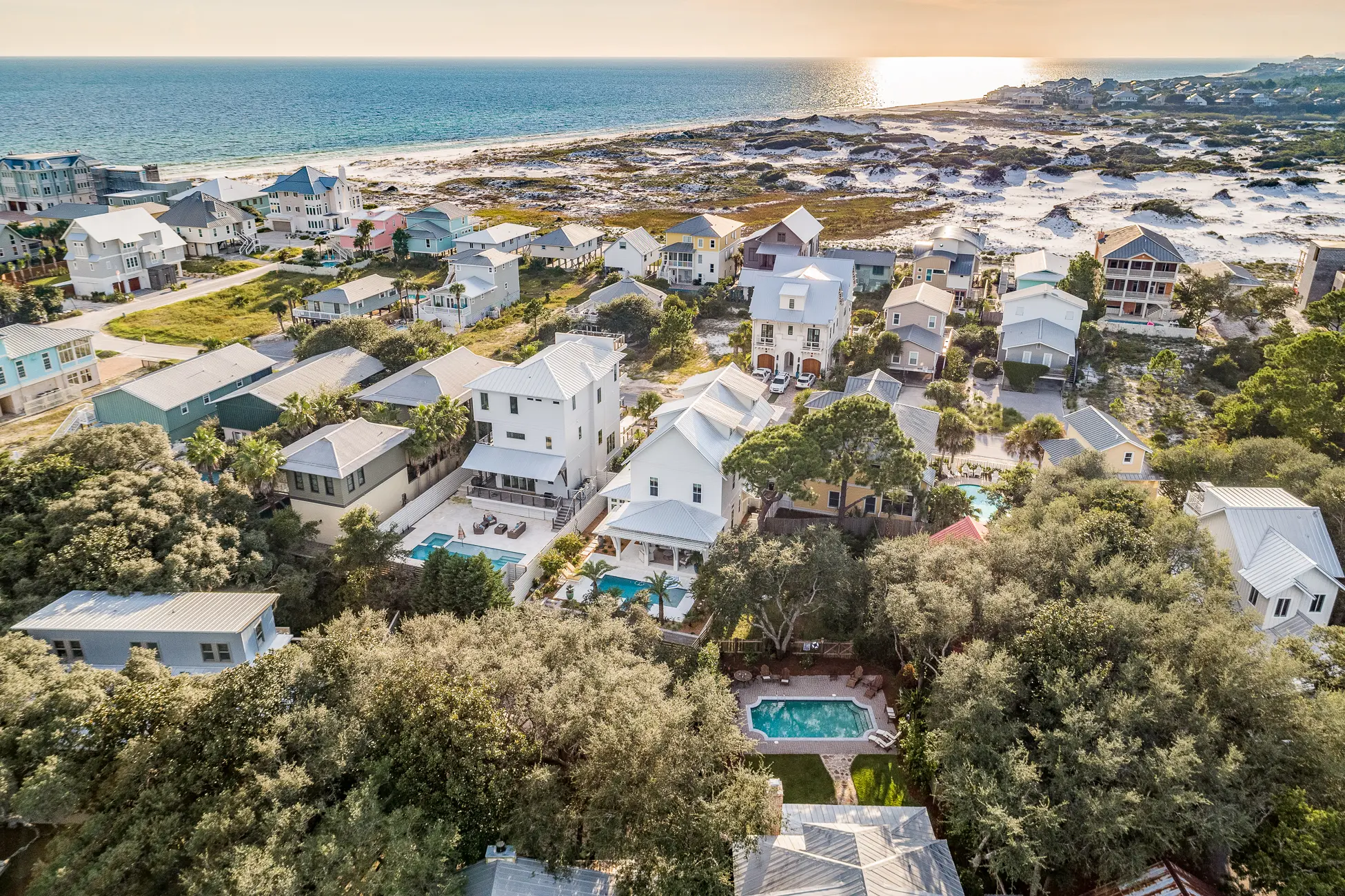Buying a home is exciting, especially if it’s in a dream location like Florida’s 30A. The problem? Most buyers get swept up in the magic of white sand beaches, charming communities, or stunning interiors and forget to slow down and ask the question that truly matters. One overlooked detail can turn that dream into a money pit.
So, what’s the one question that could save you thousands? Let’s dive in.
The Shift From Dreaming to Owning
Vacationers and second-home buyers often think only about the fun part of owning a property - morning coffee on the balcony or sunset cocktails on the porch. But when you shift from daydreaming to signing a contract, the details matter.
Common Buyer Mistakes in a Hot Market
In competitive markets, buyers often rush. They focus on one thing: getting the deal done. This urgency causes them to:
- Fixate on the sticker price alone
- Ignore fine print in HOA rules
- Skip due diligence on insurance and utilities
- Assume costs will be “about the same” as the current owner’s
That’s how financial surprises creep in.
The Forgotten Question That Protects Your Wallet
Here it is, the one question buyers almost never ask, but absolutely should:
“What are the true carrying costs of this property?”
Why Price Alone Doesn’t Tell the Whole Story
Sure, the listing price is important. But what about everything after closing? Monthly, quarterly, and annual costs add up quickly and can completely change your budget.
The Role of Hidden and Ongoing Expenses
From rising insurance premiums to special HOA assessments, these hidden costs can blindside buyers who only planned for the mortgage.
Breaking Down Carrying Costs Like a Pro
Here’s what seasoned agents know to check before you commit:
Property Taxes and Reassessments
Counties like Walton reassess property taxes after a sale. That means your bill could be far higher than what the seller currently pays.
HOA Fees, Special Assessments, and Community Dues
Some homeowners’ associations charge modest dues, while others hit you with four-figure quarterly fees or sudden “special assessments” for community projects.
Homeowners, Flood, and Wind Insurance in Coastal Areas
In coastal Florida, insurance is no joke. Wind and flood coverage alone can rival a mortgage payment. Skipping this step is a recipe for regret.
Utility Bills, Maintenance, and Repairs
Pools, septic systems, beach walkovers, landscaping - these little extras aren’t free. A property that looks affordable can bleed your budget with upkeep.
Real-Life Stories That Prove the Point
The Investor Who Overlooked Assessments
One out-of-state investor bought a rental condo, thrilled with the projected cash flow. Months later, a $15,000 special assessment from the HOA wiped out his first year’s profits.
The Family Surprised by Insurance
A relocating family bought in Seagrove only to learn their new insurance bill was $9,000 higher annually than expected, nearly $750 a month extra.
The Retiree Who Didn’t Budget for Upkeep
A retiree moving full-time to 30A underestimated pool maintenance, landscaping, and utilities. The stress of constant unplanned bills overshadowed the joy of living near the beach.
Why Seasoned Agents Always Ask This Question First
Veteran agents know to dig deeper than the list price. They calculate the “real” monthly cost of ownership before even drafting an offer.
Estoppel Letters and HOA Disclosures
An estoppel letter reveals exactly what you’ll owe in HOA dues, and whether increases or assessments are coming.
Lien and Utility Searches
These confirm there aren’t unpaid balances you’ll inherit after closing.
Insurance Quotes Up Front
Pro agents don’t wait until underwriting. They request insurance quotes immediately to confirm the numbers are realistic.
How to Protect Yourself Before You Buy
Create a “Cost to Own” Sheet Before Offering
A side-by-side breakdown of taxes, HOA dues, insurance, and utilities will show the true affordability of a property. Reach out to us and we'll send you a complimentary cost to own checklist.
Compare Costs Across Multiple Homes
Two houses priced the same could have very different ongoing expenses. Smart buyers compare before committing.
Ask About Upcoming Community Projects
A new roof, seawall, or pool resurfacing can mean massive fees for homeowners. Don’t assume the seller will disclose it, ask directly.
The Urgency Factor: Why Waiting Can Cost You
How Small Overlooks Turn Into Big Losses
Skipping one question might mean losing thousands to higher bills or unplanned repairs.
The Difference Between a Smooth Closing and Buyer’s Remorse
Buyers who calculate costs upfront move forward confidently. Those who don’t often end up frustrated—or even forced to sell.
Don't Forget This
- Always ask: What are the true carrying costs of this property?
- Price alone doesn’t equal affordability.
- Factor in taxes, insurance, HOA dues, utilities, and maintenance.
- Use an experienced agent who runs the numbers before you sign.
The Smart Move
Buying a home isn’t just about what you pay on day one, it’s about what it costs you every day after. The smartest move you can make is asking the question most buyers forget: What are the true carrying costs of this property? This one step could save you thousands and spare you years of frustration.
Want a clear picture of what your 30A dream home will really cost? The Bobby J Team can give you the pro-level breakdown seasoned agents use to protect buyers before they commit.
FAQs
1. What exactly are “carrying costs” in real estate?
Carrying costs include all expenses beyond your mortgage, such as property taxes, HOA fees, insurance, utilities, and maintenance.
2. Why don’t sellers disclose full carrying costs?
Sellers might not disclose everything because costs vary, and they don’t want to scare buyers away. It’s up to you (and your agent) to dig deeper.
3. Can HOA fees really change after I buy?
Yes. Many HOAs adjust dues annually and can levy special assessments at any time.
4. How do I estimate insurance before making an offer?
Ask your agent to connect you with a local insurance provider for quotes specific to the property’s location and features.
5. What’s the quickest way to compare two properties’ costs?
Use a side-by-side “cost to own” sheet that lists all projected expenses for each home. This reveals the true difference beyond list price.
MORE BLOGS:
Does Living on 30A Really Help You Live Longer? Science Says Yes
Where to Eat, Stay, and Play in Seaside, Without Feeling Like a Tourist
10 Places We Love Around 30A
Exploring the Unique Beach Districts of 30A in South Walton





